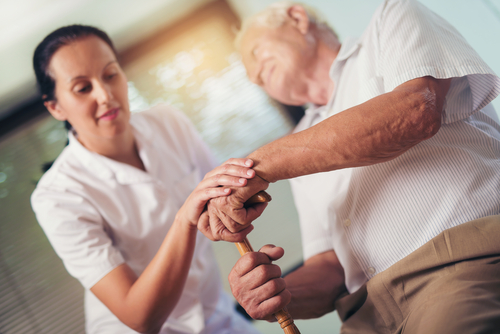Tailored Light Exposure Improves Sleep, Mood, Behavior in Alzheimer’s Patients, Study Shows
Written by |

A tailored lighting intervention in nursing homes can improve sleep, mood, and behavior in patients with Alzheimer’s disease, according to a study’s preliminary results.
The study, “Tailored Lighting Intervention For Alzheimer’s Patients And Its Effects On Sleep, Mood And Agitation,” was presented at SLEEP 2018, the 32nd joint annual meeting of the American Academy of Sleep Medicine and the Sleep Research Society, recently held in Baltimore.
Alzheimer’s patients, and those with related dementias, often experience changes in their sleeping habits and behavior, commonly leading to increased irritability and aggressiveness. These alterations can make caregiver tasks much more difficult and harder to manage.
Light exposure during the day has been proven beneficial to regulate sleep and improve behavior in Alzheimer’s patients. However, the light levels required are high and lighting fixtures currently available cannot deliver the level and spectrum of lighting required to achieve a therapeutic effect.
Researchers at Rensselaer Polytechnic Institute in Troy, New York, evaluated whether a tailored lighting intervention could help improve sleep and behavior in patients living in long-term care facilities.
The study enrolled 43 patients diagnosed with Alzheimer’s disease and related dementias who were exposed to an active or inactive tailored lighting intervention. They were exposed to the light for four consecutive weeks (active period), followed by a four-week period without exposure (inactive period).
“The lighting intervention was added to spaces in which patients spent most of their waking hours and was energized from wake time until 6 p.m.,” researchers wrote.
Compared to baseline (start of the study) and to the inactive lighting condition, the lighting intervention significantly decreased sleep disturbances, depression, and agitation. Although all behavioral parameters assessed were improved, sleep quality showed the most significant improvement.
“Here we show that if the stimulus (light dose) is carefully delivered and measured, it can have a strong impact on sleep, depression and agitation,” the study’s lead author, Mariana Figueiro, PhD, said in a press release. “Depression was a secondary measure, and I was pleasantly surprised by the positive impact of the light treatment on depression scores.”
These preliminary results demonstrate that daytime light, when carefully delivered and monitored, can improve “sleep, mood, and behavior in nursing home residents with Alzheimer’s disease and related dementias,” researchers wrote.





